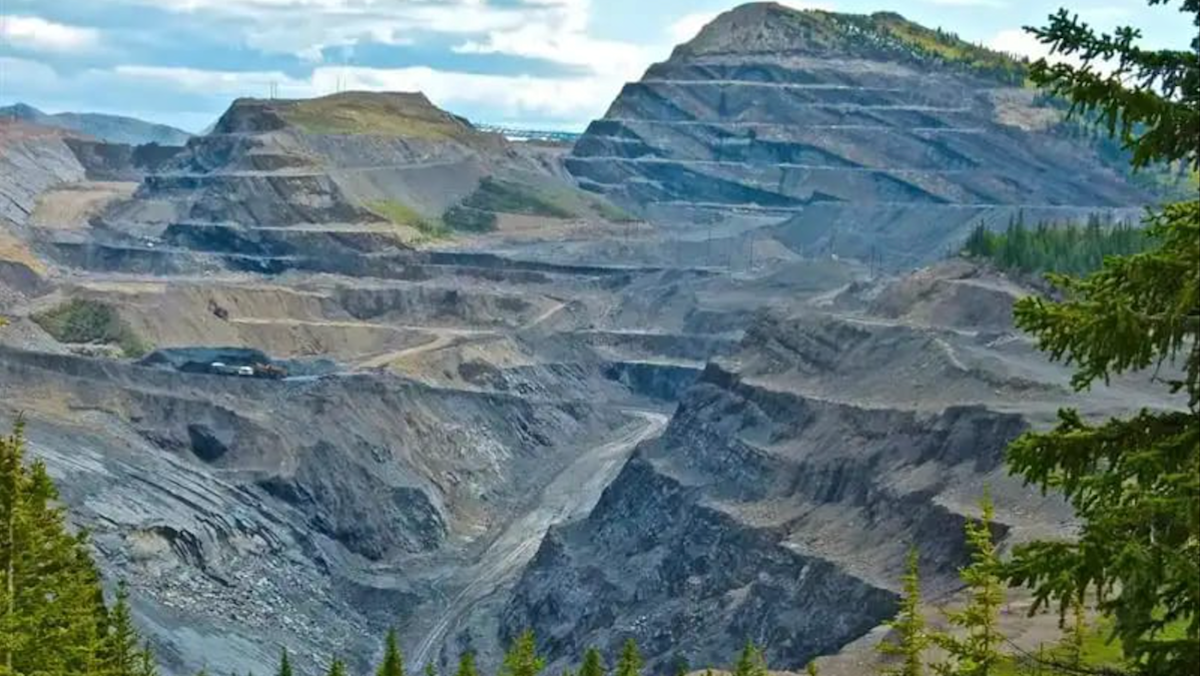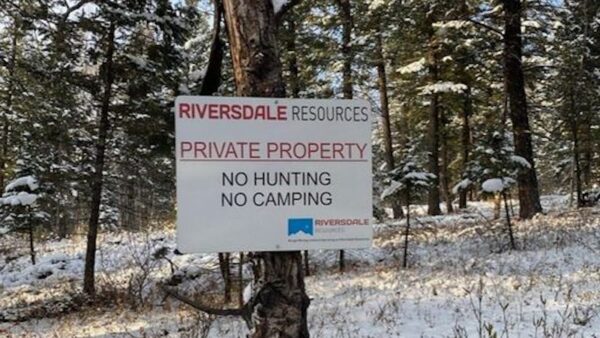New Coal Mining in Alberta Threatens Fisheries, Public Access

This article comes from the Bent Fishing Podcast’s “Fish News” segment, where hosts Joe Cermele and Miles Nolte go head-to-head to find and report the most interesting and amusing fishy stories across sources far and wide—from respected scientific journals to trashy tabloids.
The provincial government of Alberta, Canada, quietly rescinded a 45-year-old coal policy last year, opening up 37 million acres to potential surface mining, and opening themselves up to intense public scrutiny. Surface mining, be it strip, pit, or mountaintop removal has apoor track recordregarding environmental impacts—especially when it comes to water, fish, andfisheries. The government has begun walking back some of those mining opportunities after intense public outcry, but many anglers and conservationists say it’s not enough.
Southwestern Alberta iswell loved by hunters, anglers, and outdoors people. Similar to the Rockies south of the border, this mountainous region with its adjacent foothills and prairies creates spectacular fish and game habitat. Rivers like the Bow, Livingstone, North and South Saskatchewan, Oldman, and others originate on coal-rich lands that have been off limits to mining exploration and development since 1976.
The other side of the continental divide, in British Columbia, has not enjoyed the same protections. On the western slopes of the Canadian Rockies, once-pristine fisheries likethe Elk River and its tributariesnow carry elevated levels of selenium and other coal mining waste. The negative effects of selenium on ecosystems are well documented in places likeWest VirginiaandCalifornia, where the chemical completely decimated fish populations and aquatic ecosystems. Long story short, this type of mining is bad news for people who like to fish.
Additionally, mining in this area restricts access to public lands. “We as Canadians have a right to go into our public lands, but these exploration activities and mining companies are coming out and saying, ‘No, you can’t do that,'” Neil Keown, board chair of the Alberta Chapter of Backcountry Hunters & Anglers, told MeatEater. “Which is frankly, not right. People don’t understand that they’re going to lose the ability to camp, hunt, or otherwise recreate on these public lands. That’s something BHA is very upset about, obviously.”

Brief History on Alberta Coal
Alberta has long relied on abundant energy resources. These days oildominates headlines, specifically in regard to the Alberta Tar Sands and the Keystone Pipeline. But modern industry in southwest Alberta was built on coal. The Blackfoot name for the area roughly translates to “Place of the Black Rocks.”Coal mining in Albertastarted in the late 1800s, and between 1875 and 1975 over 2,000 coal mining projects sprung up in the area.
The industry cycled through booms and busts untilthe 1976 Coal Development Policy for Albertadeclared “no development will be permitted unless the government is satisfied that it may proceed without irreparable harm to the environment.”
Rescinding Coal Policy
In 2019, the United Conservative Party won the majority in provincial elections. Soon after, theCoal Association of Canada began lobbyinghard to amend the 1976 coal policy. In May of 2020, under the cloak of the global pandemic, the government quietly rescinded the 44-year-old policy, without any public comment or input.
In anews release from the Alberta government, this change is marketed as a “modernizing of almost 45-year-old rules” which will, according to them, “provide additional flexibility and certainty for industry, while maintaining stringent protection for sensitive lands.”
This move feels particularly paradoxical because, in2015, the Alberta government announcedthe elimination of emissions from coal power generation by 2030. Why increase coal production just ten years before the deadline for phasing out coal power? First, the areas being opened are rich in metallurgical coal, used to make steel, not generate power. Second, all of this coal will be shipped overseas. Third, the current government didn’t create the policy shift away from coal power; their predecessor did. The administration is trying to thread an impossibly narrow needle: court every available opportunity for immediate economic stimulus, without threatening existing industries, running afoul of the law, or alienating the majority of their constituents.
The result is a precarious balance of extractive resource expansion and public relations doublespeak. Minister of Energy, Sonya Savage, explains.
“As we strengthen our focus on economic recovery and revitalization, we will continue to make common-sense decisions to create certainty and flexibility for industry, while ensuring sensitive lands are protected for Albertans to continue to enjoy,” Savage said in the news release. “Rescinding the outdated coal policy in favor of modern oversight will help attract new investment for an important industry and protect jobs for Albertans.”
Many folks in the province welcomed the policy shift, hoping the new mines would bring a much-needed economic boost. The pandemic has hit lots of economies on the chin, Alberta’s in particular. Their two primary economic drivers, tourism and oil, both cratered in 2020.
Other Albertans, however, vehemently oppose this change. Broad swaths of the province’s generally conservative electorate—including ranchers, anglers, environmentalists, and hunters—joined in civil protests and calls for policy reinstatement. The Hurtin’ Albertan himself, musician Corb Lund, addressed this issue on social media in December, claiming “this is juvenile, short-term thinking. Why would you take any risks with at all with our water?”
Lund’s platform as a country musician allows him to reach quite a few folks, but ina video posted on Facebook, he claims to speak “not as a musician but as a sixth-generation rural Albertan.”
“The modest number of jobs the mines may create won’t make up for what we lose if we allow the foothills to be ruined and our water contaminated,” Lund said. “In addition, my understanding is that most of the mining leases are being sold to foreign companies who typically ship the coal overseas, and that the royalties Albertans will receive are negligible compared to potential environmental cost. Economically speaking, two of the main industries in Alberta that we can always count on, especially during downturns in the economy are agriculture and tourism. Open pit coal mining will threaten them both and it’s a bet I don’t want to make.”
Opposition pressure grew steadily throughout 2020 and in December of last year, the Alberta government issued a very public statement, cancelling 11 coal leases. The 11 leases they cancelled, however, made up about 4,400 acres, less than half a percent of the area opened to mining exploration. The announcement made good press but failed to offer meaningful recourse. It also failed to quell opposition and unrest.
David Luff, a former civil servant who helped implement the ’76 policy, spoke on the current changes with theCalgary Eyeopener.“It struck me as being a knee-jerk reaction on the part of the government, and that the government really doesn’t know what it’s doing in regard to coal leasing and coal exploration in the eastern slopes as a result of rescinding the policy. It’s unprecedented for a minister of the Crown to issue coal agreements or coal leases in one month and next month take them back.
“The Government of Alberta did not consult with Albertans who would be affected by the removal of the policy,” Luff continued. “The only consultation the government did was with the Coal Association of Canada and Australian coal companies. So that’s morally and ethically wrong, in my books.”
Reinstating Coal Policy
OnFeb. 8, 2021, Alberta “reinstated”the ’76 policy. “Albertans have spoken loud and clear and we have heard them,” Savage said. “Not only will we reinstate the full 1976 coal policy, we will implement further protections and consult with Albertans on a new, modern coal policy. Alberta’s government is absolutely committed to protecting the majestic Eastern Slopes and the surrounding natural environment.”
Though the government did technically reinstate the policy, they did not rescind the coal leases granted during the past nine months, and their promise of an upcoming “new, modern coal policy” gives some Albertans pause.
“The announcement by the minister on Monday is a great first step forward, as the government has now committed to holding public consultations with stakeholders, regarding an updated coal policy,” Keown explained.
“That being said, Alberta BHA is concerned that the minister confirmed that six exploration projects that were previously approved, with some approved after May 2020, are still moving ahead, which will threaten hunting and fishing access and opportunities, in addition to having environmental impacts.”
As of right now, 1.2 million acres along the eastern slopes of the Canadian Rockies remains open to coal mining and exploration. Roads are being cut into the wilderness and test mines dug into the mountains, rendering some of these areas off limits to public use. Ranchers and First Nations have aligned to form a judicial review against the government, claiming that the initial rescinding of the coal policy was unlawful. Currently both sides have filed for a delay in court, so it will be another few weeks until the issue is resolved. Unfortunately, it’s unlikely this process will have any effect on the six active exploration projects, because the government has already acted to reinstate the old coal policy, which they seem to view as appeasement enough.
If you’d like to engage on this issue, reach out to government officials.It works. You can call or email members of the legislative assembly throughBHAorCanadian Parks and Wilderness Societyto let them know you want mountaintops, not mines.
To catch all the Fish News stories and so much more, listen to thefull Bent show hereor wherever you listen to podcasts. Don’t forget to subscribe!
Feature image via Perry Hayward.
Shop
Sign In or Create a Free Account
Related

Public Lands & Waters
New Mexico Supreme Court Restores Public Stream Access Law

Public Lands & Waters
BLM Director: New Conservation Leases ‘Won’t Shut Down Public Access’



